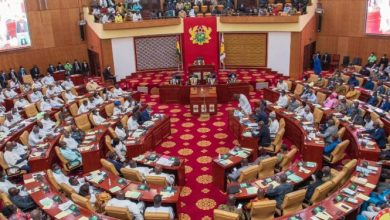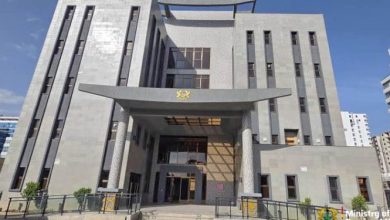POLITICS
Upgrade: How A Bawumia-NAPO Gov’t Will Create New Jobs

Job creation is key on the agenda of the next NPP government with Dr Mahamudu Bawumia as President and Dr Matthew Opoku Prempeh as Vice President.
With 2.3 million jobs created under the Akufo-Addo administration, amidst the unexpected global economic crisis, the Bawumia-Napo administration seeks to build on the achievements.
A carefully thought-through and laid down processes to realise the objectives have been captured in the party’s manifesto.
Manifesto
As stated in the NPP Manifesto, the Bawumia led government seeks to
- Train 1,000,000 youth in digital skills.
- Create jobs through private-sector construction and infrastructure development, industrialisation, and Agribusiness.
- Create jobs through the Tax Amnesty Programme, create jobs for artisans (carpenters, masons, welders etc) and built environment professionals, to maintain public infrastructure, through a revived and resourced PWD.
- Create SME jobs with the introduction of The SME Bank, create jobs through the minerals industry, and its value chain (aluminium, gold, lithium, manganese, salt etc).
- Employ more security services personnel, create jobs through the National Cybersecurity Workforce Development Programme, recruit more special needs teachers, set quotas for recruitment of PWDs for public sector recruitment.
- Employ more lawyers for legal aid (at least 2 for each District).
- Create other jobs through Tourism, Creative Arts and Sports.
- Establishing an SME Bank to meet the special financing needs of small and medium businesses, which employ over 80% of Ghanaians.
- Establishing a Fintech Fund with seed capital of US$100 Million (GHc1.6 billion) to attract additional private sector funding to support Ghanaian start-ups developing payments and financial services solutions.
- Reforming the licensing regime for the small-scale mining sector and establishing a Minerals Development Bank to finance viable local mineral projects, small scale miners, as well as Ghanaian mining and mining services firms.
- Using the Credit Scoring System to enable the average Ghanaian access basic needs through cheaper credit.
- Using government’s purchasing power to stimulate industrial expansion and business growth, which will help create jobs, by rolling out a “Buy Ghana First” policy under which all goods and services procured by the public sector will first be filled by goods and services produced locally.
- Completing the digitalisation of land titling and registration to enable owners of landed properties to use their properties as collateral to raise capital for business growth and expansion.










